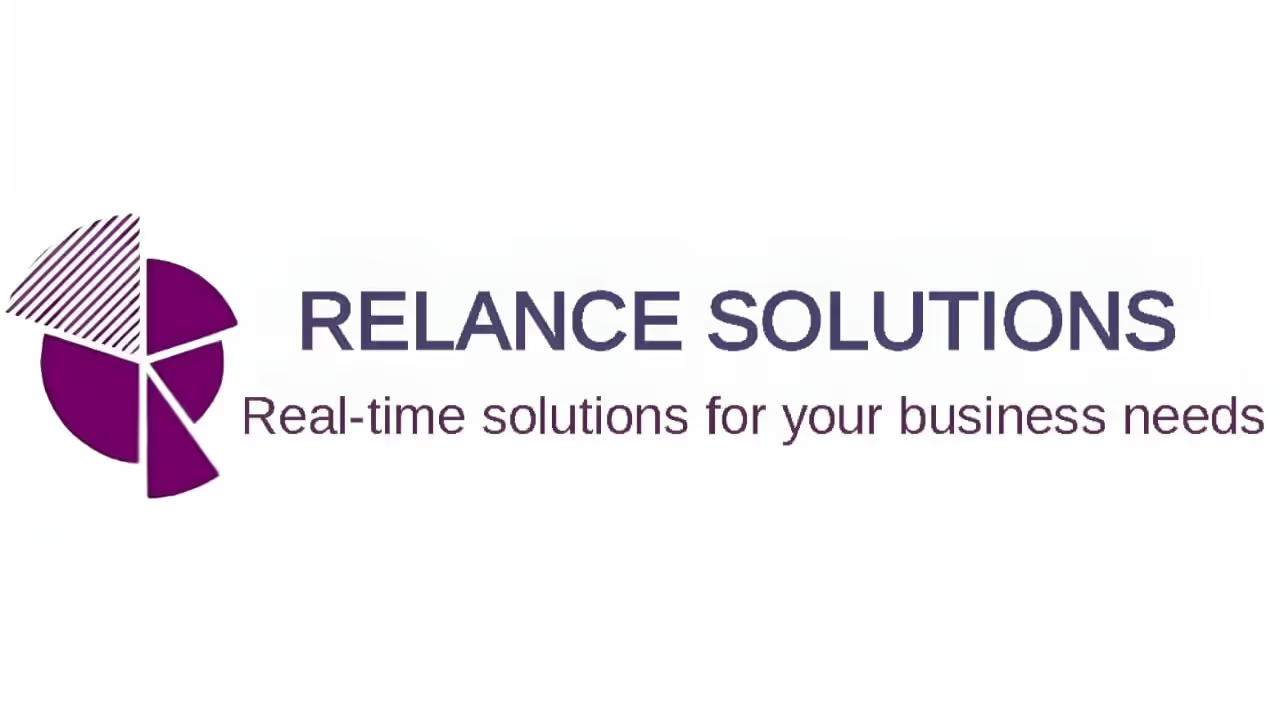Top-Rated Debt Collection Agency in the UAE
Your trusted debt collection agency in United Arab Emirates. Submit your claim for fast, dependable recovery without upfront charges. Dive into our comprehensive local debt collection guide.






The ultimate guide about debt collection in United Arab Emirates (UAE)
Why you can trust this guide
At Debitura, we uphold the highest standards of impartiality and precision to bring you comprehensive guides on international debt collection. Our editorial team boasts over a decade of specialized experience in this domain.
Questions or feedback? Email us at contact@debitura.com — we update this guide based on your input.
Debitura By the Numbers:
- 10+ years focused on international debt collection
- 100+ local attorneys in our partner network
- $100M+ recovered for clients in the last 18 months
- 4.97/5 average rating from 600+ client reviews
Expert-led, locally validated
Written by Robin Tam (16 years in global B2B debt recovery). Every page is reviewed by top local attorneys to ensure legal accuracy and practical steps you can use.
Contributing local experts:
Last updated:
Embark on a simplified journey of debt collection in the UAE with Debitura. Ingrained with regional knowledge and global expertise, this guide is your ultimate tool for effective management and recovery of domestic and international debts.
Unraveling the Key Roles in United Arab Emirates' Debt Recovery Scene
Diving into the complex tableau of United Arab Emirates' debt recovery mechanism reveals a network of dedicated entities. Debt collection agencies, bailiffs, and lawyers all play unique roles, skillfully navigating the stringent legal landscape to effectively recoup debts. In this section, we elaborate on their intricate dance of debt recovery.
The Role of Debt Collection Agencies in the United Arab Emirates
In the economic landscape of the United Arab Emirates (UAE), debt collection agencies play a pivotal role, bridging the gap between creditors and debtors during the debt recovery process. These entities are invoked by creditors when initial attempts, such as direct contact or sending demand letters, fail to recover due amounts. Agencies employ a variety of tactics—ranging from phone calls and emails to personalized meetings—to mediate and encourage debtors towards amicable repayment, all within the boundaries of the UAE's rigorous legal framework which prohibits abusive or coercive practices. While these agencies often succeed in resolving debts without stepping into courtrooms, their powers are inherently limited to extrajudicial measures. Should negotiations stall, the progression towards judicial collection becomes inevitable, marking a transition in strategy from amicable resolution to legal enforcement. It's vital for creditors to recognize the point at which involving a collection agency can serve as a more efficient alternative to direct litigation, saving both time and resources.
The Role of Lawyers in Debt Recovery in the United Arab Emirates
In the rugged terrain of debt recovery within the United Arab Emirates (UAE), engaging a lawyer often becomes a strategic necessity. Their role pivots from being mere legal advisors to becoming central figures steering the course of debt recovery action through the legal system. The involvement of a legal professional is critically endorsed when amicable collection efforts falter, propelling the matter into a realm requiring judicial examination. These legal experts undertake a plethora of responsibilities including drafting persuasive legal notices, executing judicial filings, and advocating ardently on behalf of the creditor in courtrooms.
Lawyers are instrumental in deciphering the multifaceted legal framework of the UAE, especially in cases where the debt amount surpasses informal resolution thresholds or in instances involving obstinate defaulters. Leveraging their profound comprehension of the UAE's laws governing debt recovery, lawyers ensure that creditors' claims are procedurally sound and legally robust. From meticulously preparing the legal documentation to representing clients in court hearings, their involvement is pivotal for navigating the judicial collection phase efficiently and safeguarding the creditors' entitlements.
The Role of Bailiffs in United Arab Emirates
In the United Arab Emirates, bailiffs have a pivotal role in the debt recovery process, acting under the judiciary's mandate to implement court orders. These legal officers are instrumental when debtors do not voluntarily fulfill court-mandated obligations, thereby safeguarding the creditor's rights through the enforcement of legal judgments. Their responsibilities encompass asset seizure, delivering legal notices, and eviction, wherein each activity is meticulously governed by UAE's rigorous legal framework. This ensures a judicious equilibrium between effective debt collection and upholding the rights of the debtor.
Creditor involvement of a bailiff materializes typically after obtaining a court judgment against the debtor. This is a crucial step, as it underscores the necessity of a legal mandate before a bailiff can operate. It's a testament to the UAE's commitment to a fair and lawful debt recovery process, underscoring the importance of due legal process in enforcing debt collection.
Understanding Debt Collection Legislation in the United Arab Emirates
Efficient debt recovery in the United Arab Emirates necessitates a comprehensive grasp of the intricate legal system. Adhering to these rules not only fosters proficient debt recovery but also promotes fairness and integrity in business interactions, vital for maintaining trust.
The Regulatory Environment and Civil Court System in United Arab Emirates
The civil court system in the United Arab Emirates (UAE) is structured to ensure fair adjudication of legal matters, including debt collection. It features a multi-tier judiciary system allowing for an efficient resolution process.
- Court of First Instance: This is the entry point for litigation where various lawsuits are initiated. Cases ranging from civil, commercial, to personal status are first heard here.
- Court of Appeal: Decisions made in the Court of First Instance can be appealed in the Court of Appeal. This level scrutinizes the application of law and fact from lower court decisions.
- Court of Cassation or Federal Supreme Court: The highest court in the land, focusing primarily on points of law. It ensures proper interpretation and application of laws by the lower courts.
The hierarchy of the UAE's civil court system provides a structural and procedural basis for the adjudication of disputes. This system, rooted in civil law traditions mixed with elements of Islamic law, aims to deliver justice efficiently and transparently. Its specialized court circuits further streamline the process, making it conducive for business and individual disputes resolution, including debt recovery. The court system's setup reflects the UAE's commitment to maintaining a legal environment that upholds the rule of law and respects international legal principles.
Key Legislation Impacting Debt Collection in United Arab Emirates
In the United Arab Emirates, the process of debt collection is highly regulated, with several key laws and regulations ensuring a fair and systematic approach for both creditors and debtors. Below are the pivotal legal frameworks that govern debt collection in the UAE.
- The UAE Civil Code: Provides comprehensive guidelines on contractual obligations, including debts, and outlines the legal procedures for claiming debts.
- The UAE Commercial Transactions Law (Federal Law No. 18 of 1993): Specifically addresses commercial debts, detailing the processes for filing lawsuits and enforcing judgments against debtors.
- The Insolvency Law (Federal Decree-Law No. 9 of 2016): Offers a structured process for individuals and companies facing financial distress, facilitating an orderly way to handle insolvency and debt restructuring.
These laws collectively ensure that the debt collection process in the UAE is conducted fairly, providing protection to creditors whilst also considering the rights of debtors. Engaging with the legal framework of the UAE is crucial for effective debt recovery, and entities such as Debitura are pivotal for navigating this process efficiently. Whether through amicable settlement or judicial proceedings, understanding and adhering to these regulations is essential for successful debt collection in the UAE.
Consumer Protection from Unfair Collection Practices in United Arab Emirates
In the UAE, consumer protection laws ensure fair and ethical practices during the debt collection process, fostering a balance between creditor rights and debtor welfare.
- The UAE Civil Code and the Commercial Transactions Law govern debt collection, safeguarding against undue harassment and ensuring transparency in collection efforts.
- Amendments to UAE debt laws introduce structures for individuals to create manageable repayment plans, offering protection against coercive legal actions like travel bans or imprisonment.
- The Insolvency Law in Dubai offers a benevolent process for individuals facing financial difficulties, reinforcing the commitment to protect consumers during debt repayment efforts.
- Professional debt collection is mandated to adhere to ethical standards, preventing abusive tactics and ensuring that debtor’s rights and dignity are preserved.
- The establishment of a Small Claims Court system underlines the UAE's initiative to address consumer grievances efficiently, ensuring a rapid turnaround in legal decisions.
Together, these measures solidify the UAE's commitment to consumer protection, ensuring that debt collection practices are conducted fairly and with respect to both parties involved. By blending regulatory guidance with supportive frameworks for dispute resolution, the UAE provides a model for effective debtor protection against unfair collection practices.
Efficient Amicable Debt Collection in the UAE
An overview of the amicable debt collection process in UAE; a valuable pre-legal tool that deftly negotiates settlement of debts sidestepping court intervention. We'll explore the steps, strategies, and significant factors that facilitate a hassle-free process, making it a preferred choice over its legal counterpart.
- Initial Procedures: Creditors start recovery by sending demand letters and making phone calls in Arabic.
- Regulated Communication: Interactions with debtors are strictly regulated to ensure transparency and legality.
- Amicable Resolution Steps: Includes reminder notices, formal demands, and negotiation efforts.
- Fee Structure and Limitations: No addition of collection fees to the debt, with costs based on a "No Cure No Pay" basis.
- Statute of Limitations: Up to 15 years, depending on the debt nature, giving creditors extended time for collection.
- Escalation to Judicial Process: Failure in amicable efforts may lead to judicial proceedings, with pre-trial reconciliation sometimes required.
- Consumer Protection: Emphasis on protecting consumer rights, allowing for manageable repayment plans and professional advice.
- Interest and Statutory Fees: Interest on late payments is capped at 12%, governed by Sharia law and commercial regulations.
- Professional Debt Collection Services: Engaging reputable firms can enhance success rates, adhering to negotiation and mediation principles.
- Importance of Legal Guidance: Professional legal advice is crucial for navigating the UAE's debt recovery landscape effectively.
Mastering Amicable Debt Collection in the United Arab Emirates
In the United Arab Emirates (UAE), amicable debt collection is an essential first step for creditors seeking to recover funds while preserving valuable business relationships. This method leverages direct negotiation and goodwill to find mutually agreeable solutions without resorting to litigation. Grounded in understanding and respect, amicable collection aims at developing arrangements that accommodate the debtor's capacity to pay, while ensuring the creditor's needs are also met.
Role and Strategy of Collection Agencies in the UAE
Professional collection agencies, such as Debitura, play a crucial role in the UAE's amicable debt recovery landscape. Their approach typically involves a comprehensive understanding of the debtor's financial situation combined with strategic, empathetic communication. By employing culturally sensitive and legally compliant practices, these agencies effectively navigate negotiations, making room for constructive dialogue and leading to successful debt recovery. Their distance from the creditor's emotional involvement often brings objectivity to the negotiation table, fostering an environment conducive to resolution.
The Mutual Benefits of Amicable Debt Resolution
Choosing the pathway of amicable debt collection presents several advantages. For creditors, it provides a cost-effective alternative to legal proceedings, sparing them from potentially hefty legal expenses and lengthy court disputes. On the debtor's side, it allows for the negotiation of realistic repayment plans that can alleviate financial burdens, thus maintaining their dignity and decreasing the likelihood of future financial distress. Moreover, this approach helps sustain business relationships, crucial for ongoing ventures in the closely-knit business community of the UAE.
When to Consider Legal Collection Steps
While the focus is on amicable resolution, certain scenarios may necessitate a shift towards legal enforcement. Indicators include persistent non-compliance, failure to adhere to agreed repayment terms, or evident avoidance tactics by the debtor. Transitioning to legal action requires careful deliberation, considering its implications in terms of time, cost, and the potential impact on business relationships. It is generally pursued only after all amicable avenues have been thoroughly explored.
Understanding the Costs of Amicable Collection
Debitura, with its seasoned experience in UAE's debt recovery sector, offers a financially cautious approach with a 'No Win, No Fee' model. Our transparent pricing strategy ensures clients are charged only upon successful debt retrieval, avoiding upfront costs or hidden charges. This approach not only aligns with our commitment to provide value but also underscores our confidence in resolving cases amicably. For detailed pricing information, visit Debitura's pricing page.
Debitura's Streamlined Recovery Process
Engage in a hassle-free recovery process with Debitura:
- Initiate Without Costs: Begin without upfront fees. Register here.
- Submit Your Claim: Upload your claim details effortlessly, awaiting our review and confirmation.
- Progress Transparency: Stay informed with real-time updates via our client dashboard, keeping you in the loop at every stage.
- Legal Consultation Option: Should amicable recovery not yield results, we provide access to competitive legal advice, enabling informed decisions on subsequent steps.
Understanding the Legal Debt Recovery Process in UAE
If amicable attempts to reclaim a debt fall through, one might need to resort to judicial debt collection in the UAE. This more serious measure involves securing a court order with bailiff support. In this article, we simplify the UAE specific legal debt collection process for you.
- Hierarchical Court System: The UAE has a dual court system with Federal Judiciary and local judicial departments.
- Court Circuits Specialization: Specialized circuits include personal status, criminal, civil, and commercial, among others.
- Debt Collection Laws and Regulation: Governed by the UAE Civil Procedure Code, Federal Law No. 18 of 1993, and local laws such as Dubai Court Law.
- Consumer Protection Focus: Laws provide debtor protections from predatory practices, allowing for repayment plans and legal aid.
- Judicial Debt Collection Process Introduction: Process begins with amicable settlement attempts before moving to litigation.
- Court Order for Unpaid Debt: Process guided by the Civil Transactions Law and the UAE Commercial Transactions Law.
- Small Claims Court System: Introduced for resolving minor claims under AED 100,000 efficiently.
- Choosing the Right Court: Debt recovery actions typically handled by commercial courts and small claims courts.
- Legal Fees and Process Duration: Out-of-court settlements are favored for efficiency, with costs and durations varying.
- Professional and Ethical Debt Collection: Emphasis on professional, ethical conduct respecting legal procedures and debtor rights.
Shifting from Amicable to Judicial Debt Collection in United Arab Emirates
In the United Arab Emirates (UAE), debt collection starts with amicable methods focusing on negotiation and mediation. The shift to judicial debt collection happens when these methods fail, due to disputes or the need for debt enforcement. In these cases, the importance of legal representation cannot be overstated. Professional legal advice is crucial to navigate the UAE's complex legal environment, particularly given the nuances of its Civil Transactions Law and the UAE Commercial Transactions Law, which govern debt recovery.
The Importance of a Formal Judgment in United Arab Emirates
Obtaining a formal court order is a pivotal step in judicial debt collection. This legal judgment enforces debt recovery, endorsing the creditor’s claim against the debtor. To secure a court order in the UAE, the creditor must file a case, supported by compelling evidence of the owed debt. This task demands proficient legal representation to ensure adherence to procedural requirements and the best chances of success. Upon obtaining a court order, the creditor can enforce the claim through various means such as asset seizure, garnishment of wages, or other court-sanctioned measures. Engaging in judicial proceedings, as outlined under Federal Law No. 18 of 1993 on Commercial Transactions, opens pathways for these enforcement actions, emphasizing the significance of obtaining a formal court decision in the UAE’s legal landscape.
Determining the Appropriate Court in United Arab Emirates
The choice of court for handling a debt recovery case in the UAE largely depends on the nature, complexity, and value of the claim. Factors such as claim size and the specific emirate in which the debtor resides or has assets are crucial. For minor misdemeanors and civil claims under AED 100,000, the Small Claims Court or Small Claims Tribunal (SCT) within jurisdictions like the Dubai International Financial Centre (DIFC) may be appropriate. These forums offer expedited, cost-effective resolution paths. Conversely, larger or more complex disputes fall under the purview of the Civil Courts or the Commercial Courts, contingent upon the financial magnitude and the intricacies of the case at hand. Recognizing the right judicial forum underpins effective debt recovery, requiring accurate assessment and possibly legal consultation to optimize the process.
Small Claims Court in United Arab Emirates
The United Arab Emirates (UAE) has embraced a progressive approach towards resolving minor misdemeanors and civil claims efficiently through the establishment of the Small Claims Court system. This initiative emerged from the 100-day challenge, aiming to significantly reduce adjudication times for cases involving claims under AED 100,000. By settling disputes within just one working day, the UAE seeks to enhance the legal experience for individuals and businesses alike, minimizing the time and resources traditionally required for court proceedings. The Small Claims Tribunal (SCT) within the Dubai International Financial Centre (DIFC) stands out in this regard. Established in 2007, the SCT focuses on civil, commercial, and employment disputes, offering simplified procedures, reduced filing fees, and expedited resolutions. The SCT's accessible approach benefits small businesses and individuals, providing a streamlined process conducted in English, and encouraging the use of professional legal guidance to navigate the proceedings effectively.
Ordinary Proceedings in United Arab Emirates
In the United Arab Emirates (UAE), ordinary proceedings stand as a comprehensive judicial process for claims that exceed the thresholds of small claims courts, engaging with broader and more complex legal disputes. This pathway offers substantial advantages for parties dealing with intricate legal matters, including the ability to present detailed evidence, engage in thorough legal argumentation, and avail themselves of a fuller judicial examination. Unlike small claims courts, ordinary proceedings necessitate legal representation due to their complexity and the intricacies of UAE law. Legal professionals guide parties through the procedural landscape, ensuring adherence to local regulations and the UAE Civil Transactions Law, Commercial Transactions Law, among other relevant legislations. The requirement for legal representation in ordinary hearings underscores the emphasis on detailed legal scrutiny, with lawyers playing a pivotal role in navigating the procedural dynamics and advocating effectively on behalf of their clients. Ordinary proceedings thus provide a robust framework for resolving substantial disputes, backed by the depth and expertise of legal professionals within the structured environment of the UAE's judicial system.
Executing Debt Collection in the United Arab Emirates
Upon securing a court verdict in your favor for debt collection in the United Arab Emirates, you're empowered to initiate the process of debt enforcement. This lawful procedure, steered by appointed bailiffs, entitles you to seize your debtor's property to settle the outstanding claim.
- Debt Enforcement in United Arab Emirates: Governed by Civil Transactions Law and UAE Commercial Transactions Law, emphasizing legal steps for debt recovery.
- Role of Bailiffs in United Arab Emirates: Authorized to execute court judgments including asset attachment or debtor imprisonment for ensuring compliance.
- Pre-Legal Collection Efforts: Initial attempts at amicable settlement between creditor and debtor are crucial before pursuing legal action.
- Legal Representation: Vital during court proceedings for safeguarding interests and enhancing debt recovery chances.
- Execution Process Overview: May involve filing a case, issuing a summons, and potentially seizing assets or garnishing wages to recover the debt.
- Debtor Consequences: Asset seizure, wage garnishment, or other legal actions by the court, impacting the debtor’s financial credibility.
- Regulatory Compliance in United Arab Emirates: Debt recovery actions are strictly regulated to ensure ethical standards, with licensed collectors adhering to the Fair Debt Collection Practices Act.
- Protection of Minimal Living Standards: UAE law mandates protection for a portion of the debtor's income and essential assets to uphold basic welfare.
- Use of Alternative Dispute Resolution: Emphasis on arbitration and mediation alongside formal legal avenues for achieving fair and efficient outcomes.
Understanding Bailiff Responsibilities in UAE’s Debt Recovery
In the intricate domain of debt enforcement within the United Arab Emirates (UAE), bailiffs or enforcement agents play a pivotal role. They are integral to the implementation of court decrees, dedicating their efforts to the identification, seizure, and eventual sale of a debtor's assets to reconcile the debts owed to creditors. This comprehensive process involves meticulous steps ranging from the valuation of assets to orchestrating sales, frequently conducted via auctions, under the meticulous supervision of the legal system to ensure creditor entitlements are met.
Detailed Stages of Debt Enforcement in the UAE
The debt enforcement journey in the UAE commences once a creditor forwards a claim backed by a legally binding title, which underlines the debtor’s obligation. Such titles can vary from judicial verdicts to formally recognized agreements. The involvement of bailiffs at this juncture is crucial as they undertake the task of locating and seizing the debtor’s valuable assets, which may include property, vehicles, and more. This enforcement action safeguards the debtor's basic living needs by protecting certain personal items and income levels from seizure.
Legal Costs and Framework Governing Debt Enforcement in the UAE
Navigating through the debt enforcement landscape in the UAE involves understanding the associated costs, such as court fees, bailiff charges, and expenses for legal representation. These costs are influenced by the complexity and duration of the case. The legislative structure within the UAE meticulously details the procedures for debt enforcement, delineates bailiffs' responsibilities, and clearly defines the rights of all parties involved, thereby ensuring a transparent and equitable process.
Strategies for Efficient Enforcement Preparation
Prior to initiating enforcement actions, it is imperative for creditors to confirm the possession of a valid and enforceable title. Issuing a final demand for payment to the debtor serves as a crucial preparatory step. This phase is critical not only for laying down the groundwork for potential legal recourse but also offers debtors an opportunity to voluntarily settle their obligations. It simultaneously upholds their rights to dispute or contest the enforcement efforts applied against them, illustrating the fairness and organized approach inherent in the UAE's debt recovery system.
Exploring Debt Recovery via Insolvency Proceedings in the UAE
Insolvency occurs when a debtor fails to meet financial obligations on time, often complicating conventional enforcement methods like asset confiscation through court orders due to the non-existence of recoverable assets. Crucially, bankruptcy proceedings come into play serving as a structured process to liquidate the debtor's assets, providing a last-resort strategy for retrieving any possible compensations for unresolved claims.
- Legal Framework: Governed by the UAE Bankruptcy Law and Insolvency Law, providing modern proceedings for restructuring and liquidation.
- Debtor-led Filings: Recent increase in filings by debtors, highlighting a shift towards proactive management of insolvency.
- Priority Rules: Specific cases determine priority rules, affecting the distribution of assets during insolvency proceedings.
- Managerial Liability: Directors may be held personally liable in certain bankruptcy cases, as evidenced by the 'Marka Case'.
- Expected Recovery: Recovery rates vary, dependent on debtor's assets and the efficiency of legal proceedings.
- Court Procedure: The Emirati court system's structure highlights the thorough and cautious approach taken in bankruptcy evaluation.
- Consumer Protection: Recent amendments focus on protecting individual debtors, offering repayment plans and government assistance.
- Professional Operation: Debt collection firms must operate ethically, with mediation between lenders and debtors emphasized.
- Filing Process: Requires submission of necessary documents under bankruptcy law to court for assessing financial distress.
- Appeal Rights: Opportunities for opposition, appeal, and judicial review are available, emphasizing good corporate governance.
Delving into the Dynamics of Insolvency in the United Arab Emirates
Insolvency, a vital facet of the business world, offers a legal path for entities in financial distress within the United Arab Emirates (UAE) to navigate through challenging times. Governed by comprehensive legislation, such as the Insolvency Law and Bankruptcy Law, the UAE's approach is to balance the interests of debtors and creditors, ensuring a fair and equitable resolution. Unique to the UAE is its dual court system, comprising Federal and Emirate-level courts, that handle insolvency proceedings, governed by the Federal Law No. 18 of 1993 on Commercial Transactions and Civil Transactions Law, along with the more recent amendments in UAE debt laws.
In instances where businesses face irreversible financial difficulties, the UAE Bankruptcy Law provides mechanisms for either restructuring or liquidating a debtor's assets to appease creditor demands. The law stipulates specific thresholds for filing bankruptcy, emphasizing on both creditor-initiated and debtor-led filings. Priority rules and the liability of directors play a crucial role, directly impacting the proceedings' outcomes.
Insolvency in the UAE transcends simple asset liquidation. It is a strategic decision, often leading to restructuring efforts aiming at revitalizing distressed entities. This complex process entails navigating through procedural intricacies, presenting claims, and understanding the hierarchy of creditors' rights. Engaging in this process requires an awareness of the associated costs, including court fees and legal expenses, and an understanding of the typical timelines, which vary significantly depending on the case complexity. The recent legal advancements aim at a more forgiving approach towards debtors, facilitating their journey through financial recovery while safeguarding creditors' rights.
Find a Local Debt Collection Lawyer
Need court-ready representation? Share your case once and receive up to three proposals from vetted litigation attorneys—free, fast, and with no commitment.
- Verified specialists
- Quotes in 24 h, no hidden fees
- Fair, pre-negotiated rates

RAALC Law Firm is a premier law firm in Dubai offering effective Debt Collection services in the United Arab Emirates, recognized for its strategic expertise since 2013, with accolades such as the Dubai Islamic Bank Best Law Firm Performance Award and memberships in the International Bar Association and Alliott Global Alliance®.

Wirestork is a premier debt recovery agency in Abu Dhabi offering effective Debt Collection services in the United Arab Emirates, established in 2017 with a flat-fee pricing model and recognized as a member of Sharjah Research, Technology & Innovation Park, serving multiple Middle Eastern countries.

GHI is a premier law firm in Dubai offering effective Debt Collection services in the United Arab Emirates, recognized for its British ownership, UK-qualified solicitors, and 50+ years of collective experience, serving clients across the Middle East since 2021.
.avif)
Khairallah Advocates & Legal Consultants is a premier law firm in Dubai offering effective Debt Collection services in the United Arab Emirates, founded in 2008, recognized by over 50 embassies, and awarded Full-Service Law Firm of the Year 2017.

Qattan Law Firm is a premier law firm in Amman offering effective Debt Collection services in Jordan, established in 1976, and recognized for its award-winning expertise and membership in the Jordan Bar Association, serving clients across Jordan and the UAE.

Relance Solutions LLC FZ is a premier debt recovery agency in Dubai offering effective Debt Collection services in the United Arab Emirates, positioning itself as the go-to partner with a no-win-no-fee model, founded in 2015, and serving 60+ countries.

Resolve Mediation Services is a premier debt recovery agency in Sharjah offering effective debt collection services in the United Arab Emirates, founded in 2024 and leveraging a network of associates in over 30 countries to provide tailored, out-of-court resolutions.

AARSH International LLC is a premier debt recovery agency in Dubai offering effective Debt Collection services in the UAE, positioning itself as the go-to partner with over 8 years of experience, serving 50 countries, and satisfying over 5,000 clients.

Speed Debts Collection is a premier debt recovery agency in Abu Dhabi offering effective debt collection services in the United Arab Emirates, trusted since 2020 with a contingency fee model and a 90% recovery rate, also serving clients in India.





.svg)

.webp)
.png)

.png)
.svg)












.webp)